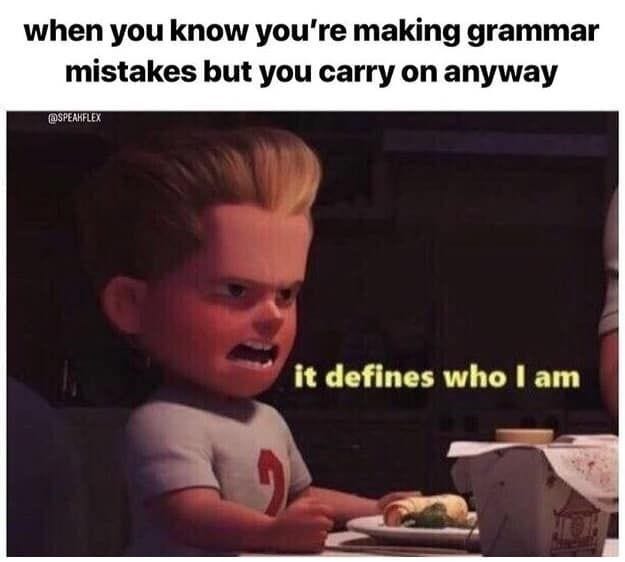The BEST Part of Being Bilingual
Things I want you all to experience
Welcome, aspiring polyglot! Whether you have been around since the start or you are new to Second Language Strategies, there will be times throughout your language acquisition where you ask yourself, “why am I doing this?” and I want to give you some things to consider when that happens. There are several reasons to start, but when it gets tough and you start to feel overwhelmed, those things may not be enough to continue.
I’ve been there, most people I know who are bilingual have been there, but there is light at the end of the tunnel. Sometimes you just need help figuring out where to look. Your motivation will ebb and flow, but you need to know why you’re doing what you’re doing in order to remain consistent. These are the ones that resonate with me, hopefully they resonate with you, too.
Traveling
The first reason to keep fighting is because your travel will be enhanced in ways you cannot possibly imagine. When I was an exchange student I was offered four international trips that I would not have otherwise been able to participate in if I didn’t speak the local language. It might not be obvious, it may not happen for a long time, but if you never open the door by learning a language you may never know. Living abroad is terrifying. These moments make it all worthwhile.
Living in Belgium is difficult, as many of you may or may not know, but it is especially difficult for someone who is used to seeing the sun 300+ days every year. I was struggling a lot with seasonal depression from a lack of vitamin D, going close to 6 months without seeing the sun a single time. Fortunately, I had made friends as I never shied away from learning the new language and people will recognize your efforts.
One day, we were coming home from a party. Amazingly, parents there are willing to come pick their kids up from a party at 2am, which certainly wasn’t the case at my home in the US. On the way back, about 4 months into my exchange, my good friend’s dad asked me if I wanted to join them for their annual family ski trip in the French Alps. I said yes without hesitation, knowing I would do what I had to in order to sort out the logistics.
Immediately after that trip, I was invited by a local church to go spend a long weekend in Paris. While the other kids on the trip spoke a bit of English, the organizers were French only and, as you might imagine, the hosts in Paris were French only. Now I am one of the few who has slept in the barracks of Sacre Coeur, climbed all 1000 steps of the Eiffel Tower, and placed a lock on the love bridge overlooking the Seine river.
At the end of my exchange, I moved to Germany with another good friend and, because I was able to communicate, however tenuously, in his language, I was invited to participate in his “senior trip” with his whole class. There I fell in love with one of the most beautiful cities in all of Germany, though some may say the company made the city better than it otherwise would have been. Of course, that’s the point, isn’t it? Visiting all of these places is great, but experiencing it with people I love made it all the better.
The problem with saying you can “travel” and “make connections” after you’ve learned a new language is that they are often abstract. You cannot and should not expect to experience the same things as someone else. But you can, and should, expect something similar. If you work hard and open yourself up to the opportunities, you will make friends around the world. You will have a greater understanding of them, their cultures, and even yourself. That’s one of the best parts about learning a new language.
Making friends
It is far too easy to get in your head about speaking incorrectly. At the end of the day, people will not care if you make mistakes; and if they do then you probably don’t want them as a friend anyway. Most people just want effort from their friends and there is no greater display of effort than doing what you can to communicate with them, even when you do not speak their native language. When I was living in Costa Rica I did one thing and made countless friends. I carried around a soccer ball.
Playing sports is one of the easiest ways to make friends because you only need a few phrases to make it through entire hours long games. Over time you will become comfortable and, hopefully, be willing to risk making more mistakes. Once you’ve done that you can start talking about more things and over time you will notice that it never really mattered when you messed up at all. Making friends in a different language is simply different.
I don’t know if it is because the simplicity of conversation builds inherent trust, it is impossible to be dishonest when you barely have enough grip on the language to speak basic sentences. Perhaps it really does come down to people understanding and appreciating just how much effort learning and speaking another language is. Whatever happens, from the trips I detailed above I had multiple people attend my wedding almost a decade after these trips happened.
Going to beautiful places, seeing breathtaking sights, and partaking in unforgettable events is fantastic. Everyone should do whatever they can to maximize the amount of beauty in their lives. However, I cannot understate how all of these things can be amplified by having people you love around you wherever you go. People are incredible, we often miss out because we cannot understand them. Speaking multiple languages solves this problem and, once you have experienced these things, you will never be able to go back.
Opening doors
Finally, the amount of opportunities you will have will double, at least. As it stands, every opportunity available to you is available to you in English. There are opportunities out there that only exist in Spanish and German and Mandarin, if you want access to those then you need to speak those languages. You cannot do a job that requires two languages if you only speak one so becoming bilingual is a simple way to quite literally double your available opportunities.
Aside from the obvious, there is the esoteric truth that it really doesn’t matter what you know, it matters who you know. It is wise to give yourself every opportunity to connect with more people. Even if you never leave the US, one day you may find yourself in an interview connecting with the interviewer over a language you both speak. You might one day meet someone who has your dream job in their hands and they would give it to you, if you spoke the same language as them. The same goes for travel opportunities and anything else.
Most people want to see other people succeed. At least that’s what I choose to believe, as it has been my experience thus far. Being able to connect, integrate, and celebrate with other people who don’t speak your native language will give you a leg up against the rest. Of course, with 55% of the global population being bilingual, we have some work to do here in the US where only 20% of people are bilingual. That’s why I’m here, though! If that’s why you are here, too, then I applaud you for making the difficult choice for the benefit of your future.
Conclusion
Irrespective of why you chose to pick up a new language in the first place, you need more than one reason to pursue something this challenging. The more reasons you have to keep pushing the better. Motivation will come and go, but when you know why you are doing what you’re doing, you will find ways to work even when you don’t feel like working. It’s a long term commitment but hopefully some of these things resonate with you.
I am always working on something new simply because I enjoy finding new ways to connect with people. That’s why I started all of this in the first place. For me, the opportunities for human connection were, are, and always will be enough. Whatever that thing is for you, I hope you find it so that you never hesitate to jump on your daily hour of language learning. It will be difficult, but you can do difficult things and become great. So go do difficult things and become great.
Eager for more Second Language Strategies?
For more content find me on Twitter or Instagram. If you are struggling to get speaking in your target language, get up to 55% off a Babbel subscription using this link. I look forward to seeing everyone’s progress in the months and years to come. Be sure to check out the YouTube channel as well!
Learning Spanish? We have begun aggregating resources in you Spanish Resource Newsletter!








I do it not for the reasons you listed but also to keep my brain working as I journey into my 8th decade!